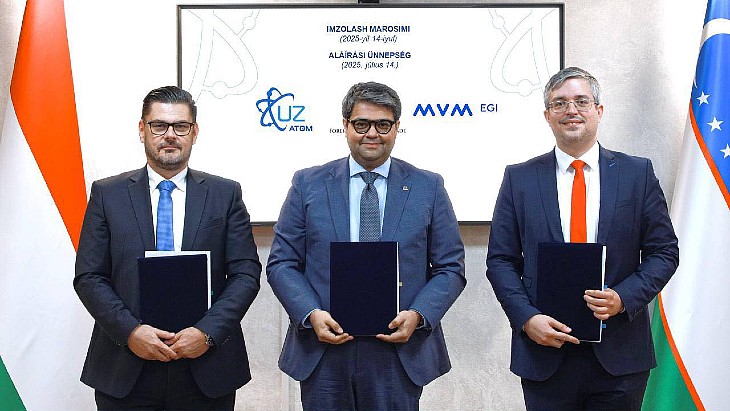According to Uzbekistan’s nuclear agency, the agreement provides "for the use of dry cooling systems based on mechanical traction, the preparation of technical and commercial proposals for the supply of equipment, the start of work on establishing a joint venture to organise a large-scale assembly of dry cooling systems in the territory of Uzbekistan, as well as the development of educational programmes and internships by Hungary".
The protocol builds on a memorandum of understanding signed in May between Hungary’s MVM EGI and Uzatom, which focused on the implementation of MVM EGI’s dry cooling technology.
According to MVM EGI, which became part of the MVM Group in 2020, "with decades of experience in dry cooling, MVM EGI delivers cost-effective, sustainable solutions for global energy projects. MVM EGI has the only reference of applied nuclear dry cooling in the world with a facility in operation in Bilibino since 1972. The company is ready to deliver its dry cooling solution to nuclear projects planned in areas with water scarcity".
It says the agreement "represents a strategic repositioning for MVM EGI in the global nuclear cooling market and reinforces our role as a forward-thinking innovator in sustainable energy solutions".
In a report on social media, Uzatom called the signing of the protocol "an important step towards expanding multilateral cooperation in the field of nuclear energy at the regional level".
Preparatory work is under way in Uzbekistan for a small modular reactor plant to be sited in the Jizzah region, featuring six of Russia’s Rosatom's 55 MWe RITM-200N water-cooled reactors. It also signed an agreement with Rosatom in June to study a possible gigawatt-scale plant featuring two or four VVER-1000 units.
In wider discussions held this week in Tashkent, in which representatives of Russia’s Atomstroyexport JSC and Atomenergoproyekt JSC were also involved, Uzatom said "particular attention was paid to the issue of localisation of production in Uzbekistan, including the establishment of a joint venture on the basis of a free economic zone. This step will not only increase the share of local participation in the implementation of the project, but also lay the foundation for further industrial development in the region".
"The parties expressed confidence that the development of multi-level partnership based on transparency, technological openness and mutual benefit will contribute to the successful implementation of one of the largest energy projects in Central Asia. Negotiations are ongoing."





_19544_40999.jpg)


_66668.jpg)





